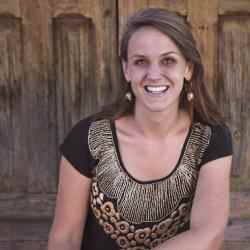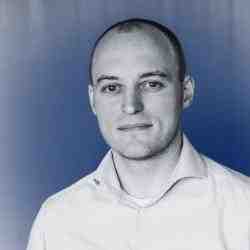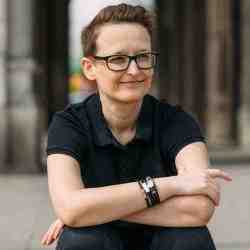Introduction
Dr. Pierre Foldes is developing an unprecedented holistic approach in a unique, free and accessible center, to efficiently overcome the issues these women are confronted with – medical, psychological, legal, and social – when they are ready to break the cycle of domestic violence. His solution is conceived as an ecosystem of cooperation between the (doctors, police, justice, small shops) to design and scale new ways of detecting and supporting these women until they are totally out of danger.
The New Idea
In order to overcome the shortcomings of existing approaches and break the spiral of domestic violence at home, Pierre has built a model that addresses the range of problems that female victims of violence often face when attempting to break the cycle of abuse. Bringing together a large range of professionals – doctors, psychologists, lawyers, social workers and nurses - in a single location, he creates a new framework of cooperation to design multidisciplinary protocols and quickly put victims out of danger. Carefully avoiding stigmatization and breaks in the support process, Pierre succeeds in definitively getting out a woman of the circle of violence in less than nine months, when most are locked into it for decades.
In addition to the Institute, Pierre focuses on prevention and early-detection of domestic violence through a network of professionals involved in the lives of women, from doctors and pharmacists to local storekeepers. With the knowledge that speaking about and reporting domestic abuses is extremely difficult – on average a victim talks after ten years of abuse - he trains them on how to detect early signs of violence, create opportunities for victims to speak up as soon as possible and recommend them to the Institute before the situation becomes too serious.
Pierre envisions a powerful transformation of society’s perception and treatment of domestic violence against women. Towards this end, Pierre is working on the replication of multidisciplinary centers in France. In parallel, he is seeking to influence key stakeholders on his methodology. Through "practical advocacy," he demonstrates the efficiency of engaging institutions (mostly justice and police departments) with private practices (lawyers, doctors and other professionals) and citizen organizations to set up new protocols and act more effectively for victims.
The Problem
In France, about 600,000 women from 18 to 75 years (5.5% of this age group) are victims of violence, whether psychological, physical or sexual. It is estimated that victims consequently lose 4 to 5 years of life expectancy. There is a very significant gap between the reality of violence against women and strategies for ending it. Being a victim of violence is still a taboo and a shame, and it is very difficult for women to talk about it. In France, it is estimated that only 16% of women victims of violence file a complaint. Often when they do, it is many years after for fear of reprisals or consequences on the family unit. In a majority of cases, actions to end violence at home are aborted following pressure from relatives, or directly from the person causing the violence.
Beyond the human cost, this violence has a significant economic cost for French society, estimated at 1.1 billion Euros a year (linked to costs of care, judiciary processes, production losses due to absenteeism and death, imprisonment et cetera) In comparison, this cost represents four times the annual cost of breast cancer, making domestic violence a major national health issue.
Violence against women equally affects all types of socio-professional categories across the country – from very poor women to privileged classes. It is, therefore, particularly difficult to target a population and develop specific actions around this population group. Existing organizations that work on this topic provide mostly fragmentary solutions, often purely social or medical, and beneficiaries fear the stigma associated with these services. In order to be helped, a woman must painfully repeat her story over and over.
In terms of detection and care, professionals who can be in contact with victims – such as lawyers, doctors, pharmacists, psychologists – are not trained to detect violence or, when they notice signs, they do not dare broach the subject or do not know how to talk about it. Some of them could be approached by victims but the price of consultation can be prohibitive for women in need. Eventually, the judicial time is not set up to quickly put women out of distress and danger. The time between a complaint filing and a lawsuit regularly exceeds 18 months, during which time women are in real danger, with risk of reprisal. It is a major obstacle to move on with the first step of denunciation and start a process of care.
The Strategy
Pierre launched the Institute ISG in January 2014 near Paris as the first multidisciplinary center for women victims of violence. His objective is to act quickly and discreetly to prevent situations from escalating. Women are received for free and without question and the center is a one-stop shop for all the support they need to take in charge of every aspect of the situation of violence they are dealing with. This includes legal support (in filling a complaint for example), consultations by medical staff and psychologists, and social support to find solutions on housing, phones, etc. Pierre has chosen to integrate the center inside a public hospital (Poissy-St Germain en Laye Hospital) near the entrance to avoid stigmatization. This option ensures women’s complete anonymity and preserves confidentiality about the reason for their presence.
As a first step, Pierre has developed innovative tools to enable women to comfortably speak up, with nurses specifically trained at the welcome desk of the Institute, and talking groups where women can express themselves in a secured, empathic and caring environment. There is no need to repeat their stories, all the information is shared between the team of various professionals who are engaged to solve women’s situation. Indeed, to ensure the service of the Institute, Pierre has mobilized 150 volunteers, including 26 permanent ones, representing various professions. For Pierre, collaboration and breaking the silos in care are key success factors. Each case is discussed by a multidisciplinary team that sets up a protocol adapted to each situation and defines the right care and priorities. With the agreement of the women, medical confidentiality is not a rule internally at the Institute, in order to better share information between the team engaged around a victim and optimize the best way to take care of her.
To avoid the frequent breakdown in care of victims, the Institute also offers original solutions of sheltering. Pierre has tied special relationship with local community partners to find housing solutions, and even offer phone loans enabling women to always stay with the center discreetly. To extend support outside the Institute when needed, specific prices are negotiated with professionals. A network of 100 psychologists, that normally take 70€ per consultation, receive women coming from the Institute ISG for 30€, and only 2€ for those in precarious situation.
In order to increase his impact, Pierre also acts on prevention and seeks to intervene closer to potential beneficiaries, mobilizing a network of volunteers in charge of detection across the territory of Yvelines. This network, initiated three years before the creation of the Institute, is based on nearly 2500 local correspondents in the fields of health, justice, national education but also simple shopkeepers and citizen organizations) in daily contact with women. For the past four years, Pierre trains them on the identification of risks and how to "ask the question." He also offers various practical guides and toolkits to help them identify the socio-health signs, and has set up a hotline specifically for volunteers to answer questions and allow them to alert the Institute when needed.
The building of a detection network has enabled Pierre to meet all the actors of the problematic and identify the gaps and dysfunctions in the existing system. His observations have led him to go beyond direct support and develop "practical advocacy" actions to impact the ecosystem of care for victims of violence beyond the walls of the Institute. As a result, he regularly defines new cooperation protocols with institutions and local associations. For example, he has worked directly with the courthouse of Versailles on a protocol where he and his team are sworn to declare a case of violence directly with the prosecutor to speed up the process with justice. He has also developed links with the College of Lawyers and Police Departments to facilitate access to representatives specifically aware on how to take in charge situations of violence. By working in strong cooperation with a network of specialized association, Pierre is able to find housing solutions for women who need it in a matter of hours. Lastly, he has an agreement with administrative institutions (like the Prefecture of Yvelines) to temporarily regularize undocumented immigrant women to ensure their presence on the territory during the support process of the Institute.
In order to meet the exponential demand of women to access the Institute’s services, Pierre has started to work on the national development of his idea, while reinforcing the economic model through new public and private national partnerships and income generation experimentations (for example, by raising awareness within companies). His development strategy is based on supporting local initiatives to open new ISG Institutes and guiding them in maintaining the practices he has developed for this model. Considering the extent of domestic/sexual violence across the French territories, Pierre has prioritized eight cities (Toulouse, Marseille, Nantes, Rouen, Lille, Lyon, Chambery, Grenoble). Pierre relies on local project leaders to manage the replication process. To accompany this organic growth, Pierre also plans to develop a strategy of influence at a national level, based on cooperation protocols with institutions already deployed in the pilot area (prefecture, sub-prefecture, courthouse) that have demonstrated impact. In his pilot, Pierre worked with the most important actors in Paris, which facilitates the setting of new protocols of cooperation around the country. Lastly, Pierre is exploring opportunities at an international level, with market studies in Ivory Coast, DRC, Mali and Senegal, with an angle of care more targeted at female genital mutilations.
The Person
Dr. Pierre Foldes has had an exceptional trajectory, almost exclusively focused on vulnerable populations. Right from the start, his dream has been to take care of people that no one wants to take care of, in areas no one wants to go. This has led him to live an extraordinary experience as a young doctor, volunteering with Mother Teresa. Working with her in hospices in Calcutta in the nineties has definitely anchored his vocation to care for women and the poorest. He was the one who convinced the nun that it was possible to cure some of these people and save them from almost certain death. He stayed there for three years and learned to work with very few resources and not to accept the inevitable.
Pierre supported the creation of the international NGO “Médecins du Monde” (Doctors of the World) alongside figures such as Bernard Kouchner, He is recognized worldwide as the urologist surgeon who has invented the technique of surgical repair for female victims of excision. As a visionary pioneer, he has developed this technique with the aim of making it as transferable as possible to local doctors, especially in Africa, working in difficult conditions with limited resources. His surgery is therefore feasible on outpatients with local anesthesia, little equipment and at low-cost. Pierre has always been very active in the transmission of its know-how and still today, through trainings and conferences, he keeps sharing what he knows to exponentially expand his impact. In France, he was able to establish that National Social Security would reimburse the surgery to repair genital mutilation.
Devoting his career and life to social causes, he has received the insignia of Chevalier of the Legion of Honor in 2006. He has also become an entrepreneur, who has the habit to grow professionally in harsh environments, in contact with the most vulnerable groups. In these situations, he never accepts the inevitable and found ingenious ways to deploy and swarm large-scale solutions. His charisma, empathy and selflessness are great assets for him to convince and move the lines at all level of society, including public institutions.
At the turn of the 2000s, after decades spent to operate and train surgeons around the world, Pierre became aware of the need to act upstream with women victims of violence, and to fix the whole system of care. The breakthrough came from his surgical consultations. First purely medical, these moments gradually became opportunities for women to speak about the origin of the violence, which often exceeded the female genital mutilation. Acknowledging that existing solutions were not adapted to enable women to speak about their situations, he imagines and builds an early warning system to report victims of violence, and then sat to work to convince the institutions to implement a much more efficient system in the way women are treated. Finally, he imagined the Institute, keeping in mind that if medical care was crucial, it was necessary to extend care to other issues. His international background on the field, especially in Africa and Asia, gives him a perfect understanding of violence against women in these countries, and allows him to consider the international development of his model in the years to come.




